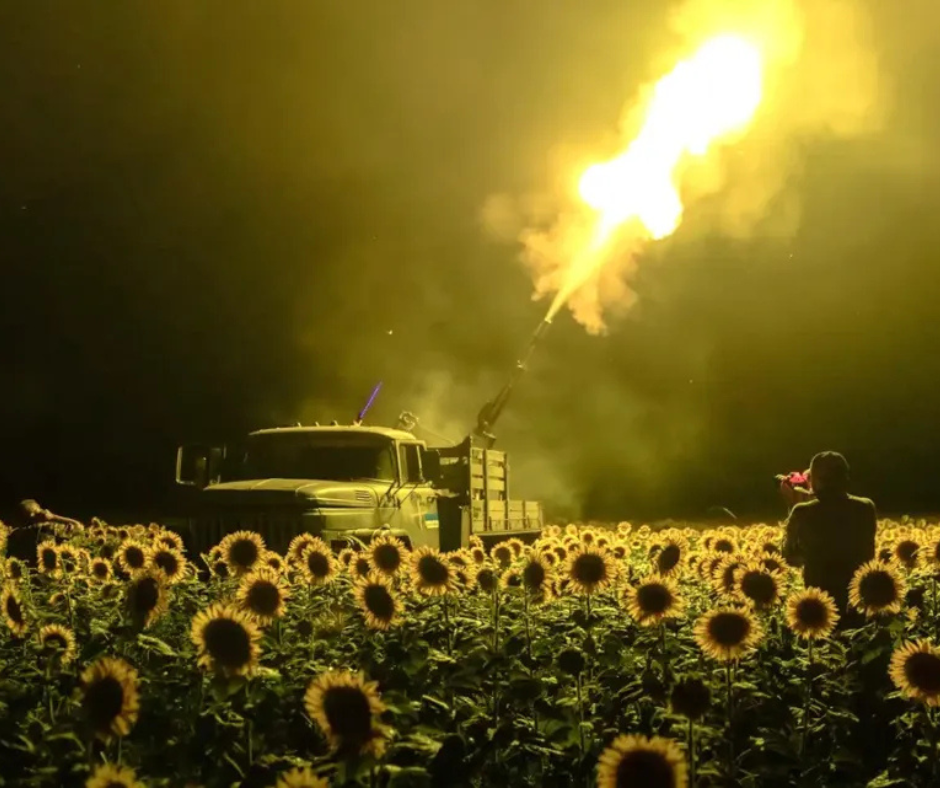Written by Mike Burnard a Analytical Strategist at dia-LOGOS.
President Donald Trump announced on his social media platform, Truth Social, that he will be meeting with Russian President Vladimir Putin on Friday, 15 August, in Alaska to discuss a potential peace deal to end the war in Ukraine.
“The highly anticipated meeting between myself, as President of the United States of America, and President Vladimir Putin, of Russia, will take place next Friday, August 15, 2025, in the Great State of Alaska. Further details to follow,” Trump posted on Truth Social last week.
BACKGROUND
The full-scale war between Russia and Ukraine began on February 24, 2022. As of August 12, 2025, the conflict has now lasted 3 years, 5 months, and 18 days. Or roughly 41.5 months.
This phase followed eight years of earlier conflict in eastern Ukraine, which started in 2014, making the broader Russo-Ukrainian war over 11 years long.
The Ukraine–Russia war has resulted in a staggering and heartbreaking loss, reaching levels not seen in recent history. Yet, with global attention largely focusing on the Israel–Gaza conflict, the ongoing suffering across Ukraine and Russia often fades from international attention.
MILITARY CASUALTIES
Russia’s total combat losses—including those killed, wounded, missing, and captured—are now estimated at approximately 1,055,210 personnel between February 24, 2022, and August 2, 2025.
While Ukraine has not released official figures, independent analysts estimate that hundreds of thousands of Ukrainian soldiers have been killed or wounded since the war began.
CIVILIAN CAUSALITIES
Since 2022, relentless shelling, drone strikes, and ground assaults have devastated civilian populations. As of May 31, 2025, the United Nations Office of the High Commissioner for Human Rights (OHCHR) has verified 13,341 civilian deaths in Ukraine since the start of Russia’s full-scale invasion on February 24, 2022. Additionally, 32,744 civilians have been reported injured, though the UN notes that actual figures may be significantly higher due to underreporting and access limitations in conflict zones. Between March and May 2025, the United Nations verified 581 civilian deaths and 2,926 injuries in Ukraine’s populated areas—representing a nearly 50% increase compared to the same period in 2024.
DISPLACEMENT AND HUMANITARIAN IMPACT
Intensified hostilities and widespread damage have displaced tens of thousands of people: more than 42,000 Ukrainians fled front-line war zones between March and May 2025 alone.
Humanitarian partners reached 3.6 million people with at least one form of life-saving assistance by the end of June 2025, despite funding for relief operations falling short of needs.
SIGNIFICANCE OF THE TRUMP–PUTIN MEETING IN ALASKA
The meeting between Trump and Putin is designed to break the stalemate over Russia’s invasion of Ukraine by having the two presidents negotiate directly on a ceasefire and potential territorial swaps. Trump set an August 8 deadline for Putin to agree to an immediate halt in fighting or face new U.S. sanctions, then scheduled the August 15 meeting in Alaska to hammer out the contours of a peace framework.
VENUE SYMBOLISM AND LEGAL SAFEGUARDS
Alaska’s choice as the venue resonates historically—once a Russian territory until the U.S. bought Alaska for $7.2 million in an 1867 sale—and strategically, as it sits just 89 Km across the Bering Strait from Russia. Critically, because the United States is not a party to the International Criminal Court (ICC), hosting the summit there removes any obligation to arrest Putin on a standing ICC warrant for alleged war crimes, a risk that European venues could not avoid.
A DIPLOMATIC FIRST ON U.S. SOIL
This will mark the first Russia–U.S. presidential summit on American soil since the 1988 Governors Island meeting and the first face-to-face encounter between Trump and Putin since before the full-scale invasion of Ukraine. It underscores Trump’s intent to bypass third-country venues and reassert a direct U.S.–Russia dialogue.
UKRAINE AND EUROPEAN ALLIES ON THE SIDELINES
Neither Ukrainian President Volodymyr Zelenskyy nor European leaders are formally invited to attend the summit, prompting Kyiv to warn that any deal made without its input would be “dead decisions.” Excluding Ukraine and its key Western supporters risks handing Russia a diplomatic win by cementing territorial gains that Kyiv rejects, notably over Crimea and parts of the Donbas.
IMPLICATIONS FOR TRUMP’S POLITICAL AND GLOBAL STANDING
By positioning himself as the orchestrator of a high-stakes peace initiative, Trump seeks to validate his campaign promise to end the Ukraine war swiftly—once even claiming he could do so within 24 hours of taking office—and to boost his foreign-policy credentials, possibly in pursuit of a Nobel Peace Prize. Critics argue this approach could undercut U.S. alliances and embolden Putin both at home and abroad.
FROM A BIBLICAL PERSPECTIVE
The Bible speaks with profound clarity and encouragement about the role of peacemakers, emphasizing both their divine calling and the blessing they carry. BUT, it is important to discern between peace-seekers for personal gain, and peacemakers as a divine calling
PEACE-SEEKERS FOR PERSONAL GAIN
These individuals pursue peace primarily for self-promotion or strategic advantage. Their motives may include:
- Avoiding consequences: The fear of sanctions could be a driving force behind Mr.Putin’s agreement to attend a summit of this nature.
- Seeking applause: Mr.Trump has on numerous occasions expressed his desire to be a recipient of the Nobel Peace Prize, and facilitating a peace process in this prolonged war could be the breakthrough he was hoping for
- Selective contributors: The fact that there will be no representatives from Ukraine, especially major role players like Ukrainian President Volodymyr Zelenskyy, places the quest for peace under suspicion
This kind of peace is often surface-level—a fragile truce that avoids discomfort rather than confronting what’s broken. It can masquerade as “peace” but lacks the moral courage to engage in costly reconciliation.
“They dress the wound of my people as though it were not serious. ‘Peace, peace,’ they say, when there is no peace.” — Jeremiah 6:14
PEACEMAKERS AS A DIVINE CALLING
Biblical peacemakers are agents of reconciliation, truth, and justice. Their peace is not passive or verbal only—it’s active, sacrificial, and prophetic. Divine peacemakers include all role-players as they seek to:
- Confront injustice with grace and truth
- Bridge divides between enemies, cultures, and ideologies
- Heal wounds through forgiveness, lament, and restoration
- Reflect Christ’s ministry, who reconciled humanity to God through the cross
Their calling is rooted in the character of God and the mission of Christ. They don’t seek peace to avoid pain—they enter pain to bring peace.
“God was reconciling the world to himself in Christ… and he has committed to us the message of reconciliation.” — 2 Corinthians 5:19
KEY DIFFERENCES
Motivation
Peace-Seekers for Gain: Self-interest, self-promotion, self-gain, control
Peacemakers by Calling: Obedience, compassion, justice
Depth of Peace
Peace-Seekers for Gain: Superficial, temporary, conditional
Peacemakers by Calling: Transformational, enduring
Truth Engagement
Peace-Seekers for Gain: Often avoids or distorts truth, plays the blame game
Peacemakers by Calling: Anchored in truth and grace, self-reflection and self-evaluation
Cost
Peace-Seekers for Gain: Avoids sacrifice
Peacemakers by Calling: Willing to compromise for the sake of reconciliation
Spiritual Identity
Peace-Seekers for Gain: Self-defined
Peacemakers by Calling: Called “children of God” (Matt. 5:9)
A PRAYER FOR PEACE
God of mercy and justice,
We lift Ukraine before You—its people, its cities, its destroyed homes and broken dreams.
For every life lost, every child displaced, every family torn by war,
We cry out: How long, O Lord?
Let Your peace descend not as silence over injustice,
But as healing over wounds,
As courage in the face of fear,
As truth that refuses to be buried beneath propaganda or power.
We pray Lord, strengthen those who seek real peace —those who risk comfort to speak truth,
Who crosses divides to sow reconciliation,
Who carry hope into the rubble.
May Your Spirit hover over Ukraine like it did over the waters—
Bringing order from chaos, light from darkness,
And resurrection from ruin.
In the name of Christ, the Prince of Peace, we pray. Amen.
Picture
The Guardian: https://www.theguardian.com/artanddesign/gallery/2025/aug/01/the-week-around-the-world-in-20-pictures
Ukrainian servicemen of the 59th brigade mobile air defence unit fire a Soviet-made ZU-23 anti-aircraft twin auto-cannon towards a Russian drone from a sunflower field, during an air attack near Pavlograd.

